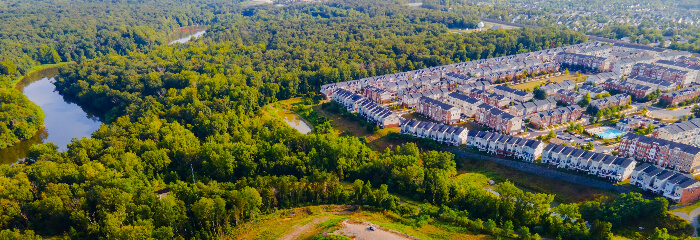Loudoun County, Virginia, approves tourism tax on all short-term rentals
- Nov 14, 2023 | Jennifer Sokolowsky

All short-term rentals (STRs) in Loudoun County, Virginia, are subject to the county’s 8% tourism tax under a new law approved by the Loudoun County Supervisors. Previously, the local tourism tax only applied to short-term rental units with at least four bedrooms.
The tax is paid by guests on top of their rental charges. Of the revenues generated by the tourism tax, 2% goes to the General Fund, 3% is allocated to tourism promotion, and 3% is spent on transportation funding in Northern Virginia.
Loudoun County short-term rental operators must collect the lodging tax from guests and remit it to the county, unless an accommodations intermediary, including STR marketplaces such as Airbnb and Vrbo, collects the tax from the guest at the time of payment.
Tax compliance is only one part of STR regulation in Loudoun County. STR operators must also register with the county annually — unless they’re represented by a real estate professional — obtain a zoning permit, and file for Business Tangible Personal Property Tax (BPPT).
Virginia STR regulations rising
Communities in Virginia have been active in passing new laws to regulate short-term rentals.
Loudoun County follows in the footsteps of Richmond, which made short-term rentals subject to local lodging taxes this past summer. More recently, the Richmond City Council passed an ordinance restricting short-term rentals to properties that are the operator’s primary residence where they live for at least 185 days a year. Hosts are required to prove their residency by presenting voting or DMV records and the city plans to hire new staff to help enforce the STR rules.
Over the past few years, Norfolk and Virginia Beach each passed ordinances setting rules about where short-term rentals can operate within the city, among other requirements.
Other local governments that have taken action on STRs include Northampton County, Amherst, and Northumberland.
Short-term rentals also subject to state sales tax
In addition to local tourism taxes, Virginia STRs are also subject to Virginia’s 6% state sales tax. For tax purposes, the commonwealth of Virginia defines a short-term rental as a stay of fewer than 90 days. Short-term rental operators are required to register with the Virginia Department of Taxation.
Short-term rental marketplaces such as Airbnb and Vrbo are required to collect and remit all state and local lodging taxes for their listings. Virginia operators who conduct all their short-term rental transactions through a short-term rental marketplace don’t need to register with the commonwealth. However, operators are responsible for collecting and remitting lodging tax and sales tax to local and state tax authorities if taxes aren’t being collected on their behalf.
Avalara MyLodgeTax can help short-term rental hosts automate and simplify lodging tax compliance at the city, county, and state levels, including tax registration and filing. For more on short-term rental lodging tax in Virginia, see our state vacation rental tax guide. If you have tax questions related to vacation rental properties, drop us a line and we’ll get back to you with answers.











